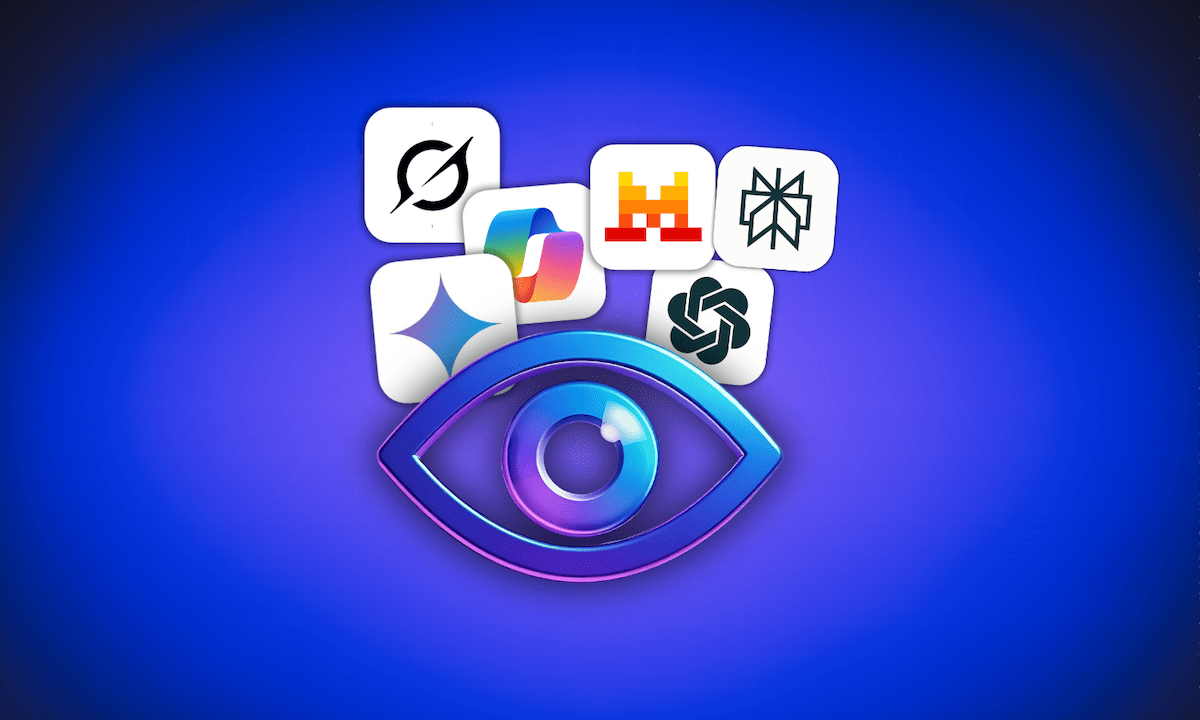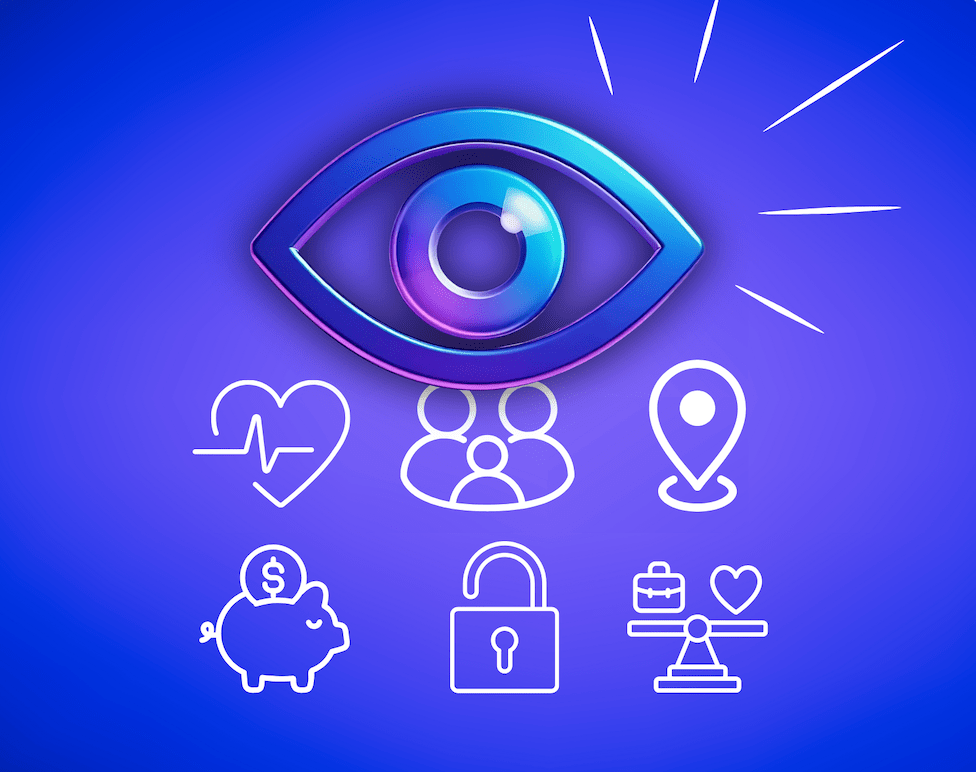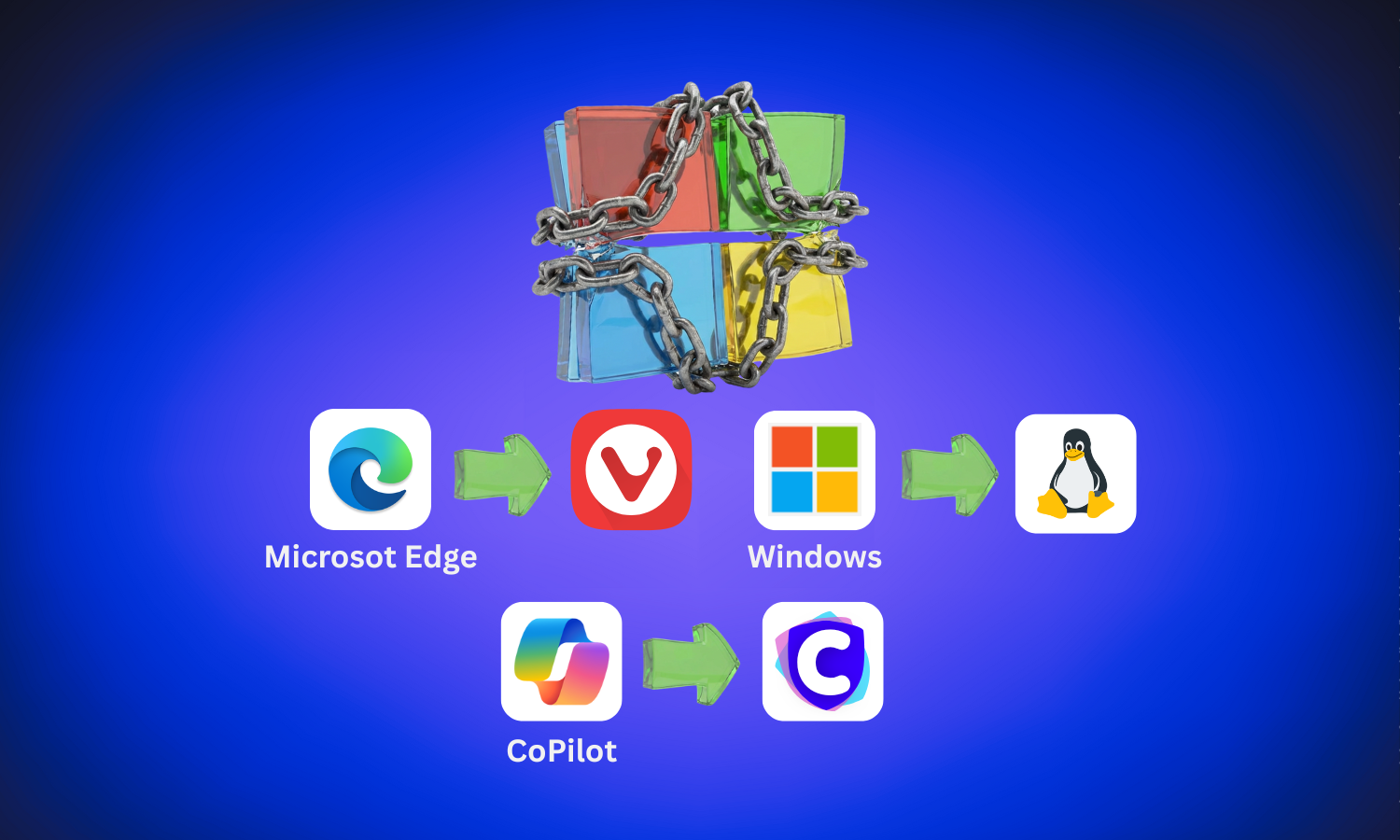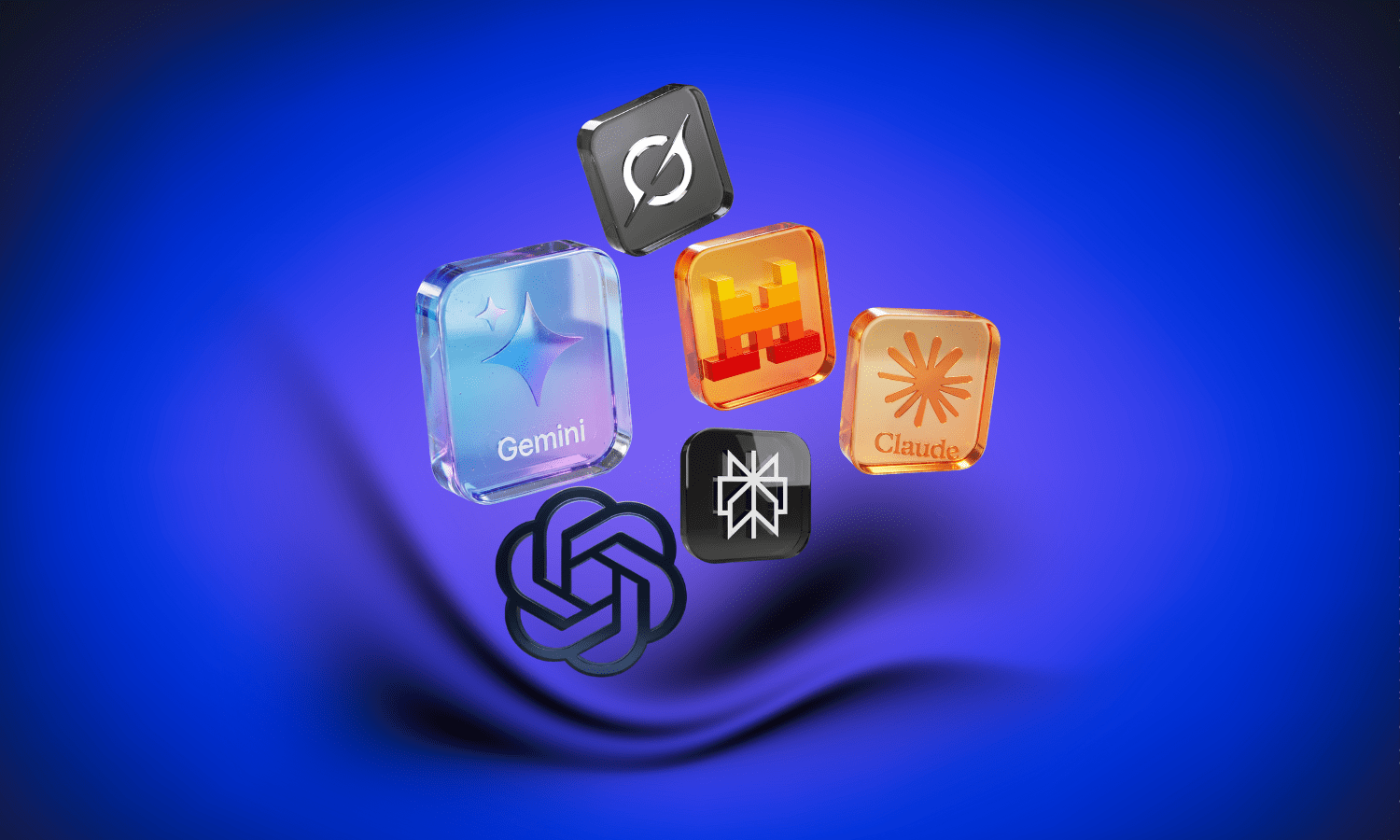Your AI Assistant Is Watching
The hidden cost of 'free' artificial intelligence and how paid AI is often no better for your privacy

From intimate health details to family secrets: How major AI providers build detailed profiles from your conversations and why it’s time to switch to privacy-preserving alternatives
Scroll down to view the full list and find out how ChatGPT, Grok, Perplexity, Google Gemini, Microsoft Copilot, Claude, Mistral and DeepSeek use your data and how privacy-friendly they are. You may be shocked by the results.
These days, we tend to ask AI assistants about everything, from work projects to personal dilemmas and health concerns to relationship advice. But what if we told you that every conversation you’ve had with ChatGPT, Gemini or other popular AI platforms has been carefully catalogued and analysed, and could be used in ways you’ve never imagined?
The uncomfortable truth is that when you use “free” AI services, you’re not the customer—you’re the product. The fuel that powers these sophisticated systems is your most private thoughts, sensitive questions and intimate details, and the implications go far beyond what most users realise.
The Shocking Reality: What Your AI Really Knows About You
Here’s an eye-opening experiment for anyone who has used ChatGPT or similar AI services extensively: Ask your AI assistant to describe everything it knows about you based on your conversation history. The results are often startling.
We have asked some of our users who have previously used ChatGPT to try this experiment. The result? Most of them report being perplexed at the detailed profile their AI had constructed. The assistant didn’t just remember their professional interests or casual questions—it had cataloged deeply personal information including:
- Intimate health concerns (including embarrassing medical symptoms they’d asked about privately)
- Family relationships and dynamics (names of partners, children, and relatives)
- Geographic location and lifestyle patterns (where they live, work, and spend time)
- Financial situation and concerns (salary discussions, debt worries, investment questions)
- Personal secrets and vulnerabilities (relationship problems, mental health struggles, career fears)
One user reported being shocked that their AI assistant knew about a private medical condition they’d only mentioned once in passing, along with their pet’s name, their partner’s profession, and even details about their neighborhood that they’d never explicitly shared.
But here’s where it gets truly concerning: AI systems don’t just store this information—they make connections.

The Web of Digital Surveillance: How AI Connects the Dots
Modern AI systems excel at pattern recognition and data correlation. When an AI knows your location and your partner’s name, it can potentially:
- Cross-reference public records to find social media profiles and additional personal information
- Map your social network by identifying connections between family members and friends
- Build predictive models about your behavior, preferences, and vulnerabilities
- Create detailed psychological profiles that can be used for targeted manipulation
This interconnected web of information doesn’t stay within the AI company’s walls. These detailed profiles become valuable assets that can be:
- Shared with advertising partners for hyper-targeted marketing campaigns
- Accessed by employees during quality assurance or troubleshooting processes
- Compromised in data breaches, exposing your most private conversations
- Used by bad actors for identity theft, blackmail, or social engineering attacks
The Business Model: Why Your Data Is So Valuable
The fast progress in AI isn’t happening on its own — it’s being fuelled by all the personal data these companies collect. Here’s how the cycle works:
1. Data Collection
Every conversation you have with an AI assistant becomes training data. The more personal and detailed your interactions, the more valuable this data becomes for improving the AI’s responses and understanding human behavior.
2. Model Improvement
This conversational data is used to fine-tune AI models, making them more convincing, more helpful, and more likely to keep users engaged for longer periods.
3. Monetization
The improved AI attracts more users, generating more data and creating opportunities for:
- Premium subscription services
- Advertising revenue through partner networks
- Data licensing to third parties
4. The Feedback Loop
Better AI leads to more intimate conversations, which generates more valuable data, perpetuating the cycle.
Most users don’t realize they’ve signed up for this data extraction process. The terms of service warnings about employee access to conversations are often buried in lengthy legal documents that few people read—and even fewer understand the implications of.
The Privacy Nightmare: Major AI Platforms Under the Microscope
Let’s examine the privacy practices of the most popular AI assistants and why they should concern anyone who values their digital privacy:
ChatGPT (OpenAI) - High Privacy Risk
- Training Data Usage: Actively uses conversations for model improvement
- Data Breaches: Multiple security incidents, including a significant recent breach in August 2025 where private conversations were exposed and indexed by search engines
- Employee Access: Staff can access conversations for quality assurance and safety monitoring
- Data Retention: Conversations are stored indefinitely unless manually deleted, and deletion doesn’t guarantee removal from training datasets
- Company location: US-based
Google Gemini - High Privacy Risk
- Ecosystem Integration: Part of Google’s extensive data collection network, with potential cross-platform data sharing
- Private Mode Limitations: Even in “private” mode, conversations are stored for up to 72 hours after deletion
- Employee Review: Google staff can access conversations for improvement purposes
- Advertising Integration: Data can potentially be used to enhance Google’s advertising targeting
- Company location: US-based
Microsoft Copilot - High Privacy Risk
- Data Collection: Integrated with Microsoft’s broader ecosystem, including Office 365 and Windows
- Commercial Interests: Microsoft’s partnership with OpenAI means data may be shared across platforms and used for model training
- Enterprise Exposure: Business users risk exposing confidential company information
- Company location: US-based
Grok (xAI) - Very High Privacy Risk
- Aggressive Training: Explicitly uses all user conversations for model training
- Corporate Strategy: Part of Elon Musk’s broader AI ambitions, with less established privacy protections
- Default Settings: No easy opt-out from data usage for training purposes
- Company location: US-based
Perplexity AI - Very High Privacy Risk
- Training by Default: Conversations are used for training purposes, even for paid subscribers, and the monetisation of users’ data and conversations is also possible, even for paid subscriptions
- Image Storage Issues: Private, sensitive images of users were previously stored publicly on Cloudinary servers, making them visible to anyone using the internet
- False Security: Users assume paid subscriptions protect their privacy, but data might still harvested
- Data sharing: Using Perplexity means that you are also indirectly using Google. Your IP address will be sent to Google’s servers
- Company location: US-based & relies heavily on big tech partners (Google & Microsoft & Amazon)
Claude (Anthropic) - Moderate Risk
- Training by default: From August 2025 onwards, both new and existing conversations with the AI assistant will be used for training purposes, including those of paying subscribers
- Limited Transparency: Unclear exactly how data is processed
- Complicated opt-out from training: ⚙️ Settings → Privacy → Privacy settings → “Help improve Claude” → OFF.
- Company location: US-based & relies heavily on big tech partners (Amazon)
Chinese AI Platforms (DeepSeek, Qwen) - Very High Privacy Risk
- Foreign Jurisdiction: Data stored on Chinese servers with different privacy laws
- Government Access: Potential for state surveillance and data access
- Training Usage: All conversations used for model improvement with no opt-out options
- Company location: Chinese-based
Mistral AI - High Privacy Risk
- Default Training: Input and output data used for training unless users actively opt-out
- Feedback Exploitation: Any thumbs up/down feedback automatically enrolls conversations in training data, no matter if on a free plan or a paid plan
- Previous privacy issues: By default, Mistral’s AI previously knew the user’s location without ever asking or being told
- Hidden Costs: Users must actively manage privacy settings to avoid data harvesting
- Company location: EU-based & relies heavily on big tech partners (Google & Microsoft)
- Side note: As a European company, Mistral aims to rival the leading companies based in the US and China. This would not be possible without harvesting user data.
The Manipulation Machine: How Your Data Becomes a Weapon
The data collected by AI platforms not only improves chatbots, but also creates unprecedented opportunities for manipulation and exploitation:
Hyper-Targeted Advertising
With detailed psychological profiles, advertisers can craft messages that exploit your specific vulnerabilities, fears, and desires. They know exactly when you’re feeling insecure, what health concerns keep you up at night, and which emotional triggers are most likely to make you spend money.
Social Engineering Attacks
Cybercriminals can use leaked AI conversation data to craft convincing phishing attempts, impersonation schemes, and fraud attempts. When attackers know your pet’s name, your mother’s maiden name, and your recent concerns, traditional security measures become ineffective.
Political Manipulation
The same data that helps AI understand your personality can be used to craft political messages designed to influence your voting behavior, spread disinformation, or create social division. Remember the Cambridge Analytica scandal involving Facebook’s use of user data for political campaigns? Unfortunately, most users have forgotten about it, but it is more relevant now than ever before, given the current advancements in AI.
Corporate Espionage
Business users who discuss confidential strategies, financial information, or trade secrets with AI assistants are essentially handing this information to competitors, foreign governments, and other interested parties.
And that’s without even mentioning mass surveillance.
The Enterprise Risk: When Business Secrets Become Public
For businesses, the stakes are even higher. Companies that allow employees to use data-harvesting AI platforms for work-related tasks risk:
- Intellectual Property Theft: Trade secrets and proprietary information becoming part of training datasets
- Regulatory Violations: Potential breaches of GDPR, HIPAA, and other privacy regulations
- Competitive Disadvantage: Strategic plans and business intelligence being accessible to competitors
- Legal Liability: Exposure to lawsuits from clients whose confidential information is compromised
A single conversation about a product launch, merger discussion, or client strategy session could end up in the training data of AI systems used by competitors, journalists, or regulatory bodies.
The Solution: Privacy-First AI Alternatives
The good news is that you don’t have to choose between AI assistance and privacy protection. Privacy-first AI platforms offer sophisticated artificial intelligence without the data harvesting:
Key Features of Privacy-Preserving AI:
- Utilization of Open Source AI Models: Employing established Open Source models rather than developing proprietary models from scratch.
- Non-Utilization of Training Data: Ensuring that user conversations are not utilized for model enhancement or the training of new systems.
- Data Encryption: Implementing robust encryption protocols for messages, files, and images to safeguard user privacy.
- Zero Data Retention: Conversations are permanently deleted when users choose to remove them
- Transparent Policies: Clear, understandable privacy policies without hidden clauses
- No Employee Access: Staff cannot read or access user conversations under any circumstances
- Jurisdiction Protection: Data stored in privacy-friendly jurisdictions with strong legal protections (for example EU)
Let’s take a look for example at CamoCopy which represents the new generation of privacy-conscious AI assistants. Unlike data-harvesting platforms, CamoCopy:
- Uses open source AI models - So no need to train AI models
- Never uses conversations for training - Your chats remain strictly private
- Encrypts all communications - Protects chats by encrypting messages, files and images
- Offers permanent deletion - When you delete a conversation, it’s gone forever
- Maintains zero logs - No conversation history is retained on servers
- Provides transparency - Clear policies about data handling and processing
- Works with carefully selected partners - Ensuring that sub-processors are equally dedicated to data protection
- Serves both individuals and enterprises - Trusted by businesses for confidential communications
The Real Cost of “Free” AI
The phrase “if you’re not paying for the product, you are the product” has never been more relevant. Free AI services monetize your data in ways that create long-term risks far exceeding any short-term convenience benefits:
Financial Costs
- Identity theft and financial fraud enabled by leaked personal information
- Reduced negotiating power as companies know your financial situation and pressure points
- Manipulation into unnecessary purchases through targeted advertising
Professional Costs
- Career damage from leaked confidential business discussions
- Lost competitive advantages when proprietary information becomes public
- Legal liability for privacy violations in regulated industries
Personal Costs
- Relationship damage from exposed private conversations
- Mental health impacts from privacy violations and surveillance anxiety
- Loss of autonomy as your behavior becomes increasingly predictable and manipulated
Making the Switch: Protecting Your Digital Privacy
Transitioning to privacy-first AI doesn’t mean sacrificing functionality. Here’s how to make the change:
Immediate Steps:
- Audit your current AI usage - Review what information you’ve shared with existing platforms
- Delete conversation history - Remove past conversations from platforms that allow it (knowing this may not prevent training usage)
- Change your AI habits - Stop sharing sensitive information with data-harvesting platforms
- Research alternatives - Find privacy-first AI assistants that meet your specific needs
Long-term Privacy Strategy:
- Adopt a privacy-first mindset - Assume that anything shared with free AI services will be stored, analyzed, and potentially exposed
- Segregate your AI usage - Use privacy-preserving platforms for all your discussions and free platforms only for general, non-personal queries
- Educate your network - Help friends, family, and colleagues understand the privacy risks of popular AI platforms
The Business Case for Privacy-Preserving AI
For organizations, investing in privacy-first AI isn’t just about compliance—it’s about competitive advantage:
Risk Mitigation
- Prevent intellectual property theft and corporate espionage
- Avoid regulatory fines and legal liability
- Protect client confidentiality and trust
Strategic Benefits
- Maintain competitive advantages by keeping strategies private
- Enable honest internal discussions without fear of exposure
- Build client confidence through demonstrated privacy protection
Financial Advantages
- Avoid costs associated with data breaches and privacy violations
- Prevent loss of business due to compromised confidentiality
Red Flags: How to Identify Data-Harvesting AI Platforms
When evaluating any AI service, watch for these warning signs:
- Free tier with advanced capabilities - Sophisticated AI is expensive to run; free services need alternative revenue sources
- Vague privacy policies - Complex legal language designed to obscure data usage practices
- Training data opt-out buried in settings - Making privacy protection difficult to find or activate
- Employee review clauses - Policies allowing staff to read conversations for any reason
- Undefined data retention periods - No clear timeline for when conversations are permanently deleted
- Third-party sharing provisions - Allowing data to be shared with partners, advertisers, or other companies
Don’t wait for a privacy disaster to take action. Find your ideal privacy-preserving AI assistant by doing your research now.
Conclusion: The Choice Is Yours
The artificial intelligence revolution is transforming how we work, learn, and communicate. But this transformation doesn’t have to come at the cost of your privacy, security, and autonomy.
Every day you continue using data-harvesting AI platforms, you’re contributing to a detailed profile that can be used to manipulate, exploit, and potentially harm you. The intimate conversations you think are private are being analyzed, categorized, and monetized in ways that create unprecedented risks to your personal and professional life.
Rather than abandoning AI, the solution is to choose AI services that respect your privacy and prioritise your interests. Privacy-preserving AI platforms demonstrate that sophisticated artificial intelligence can be achieved without compromising your digital rights.
Your conversations reveal your hopes, fears, dreams, and vulnerabilities. They deserve better protection than being fodder for corporate profit and potential exploitation.
The question isn’t whether you can afford to switch to privacy-first AI—it’s whether you can afford not to.
Ready to take control of your AI privacy? Start by testing privacy-first alternatives like CamoCopy and experience the peace of mind that comes with truly confidential artificial intelligence.
Remember: In the world of AI, your privacy is not just about what you share today—it’s about protecting yourself from how that information might be used against you tomorrow. Choose wisely, because your digital future depends on the decisions you make right now.



